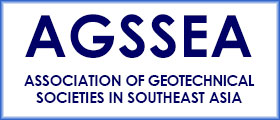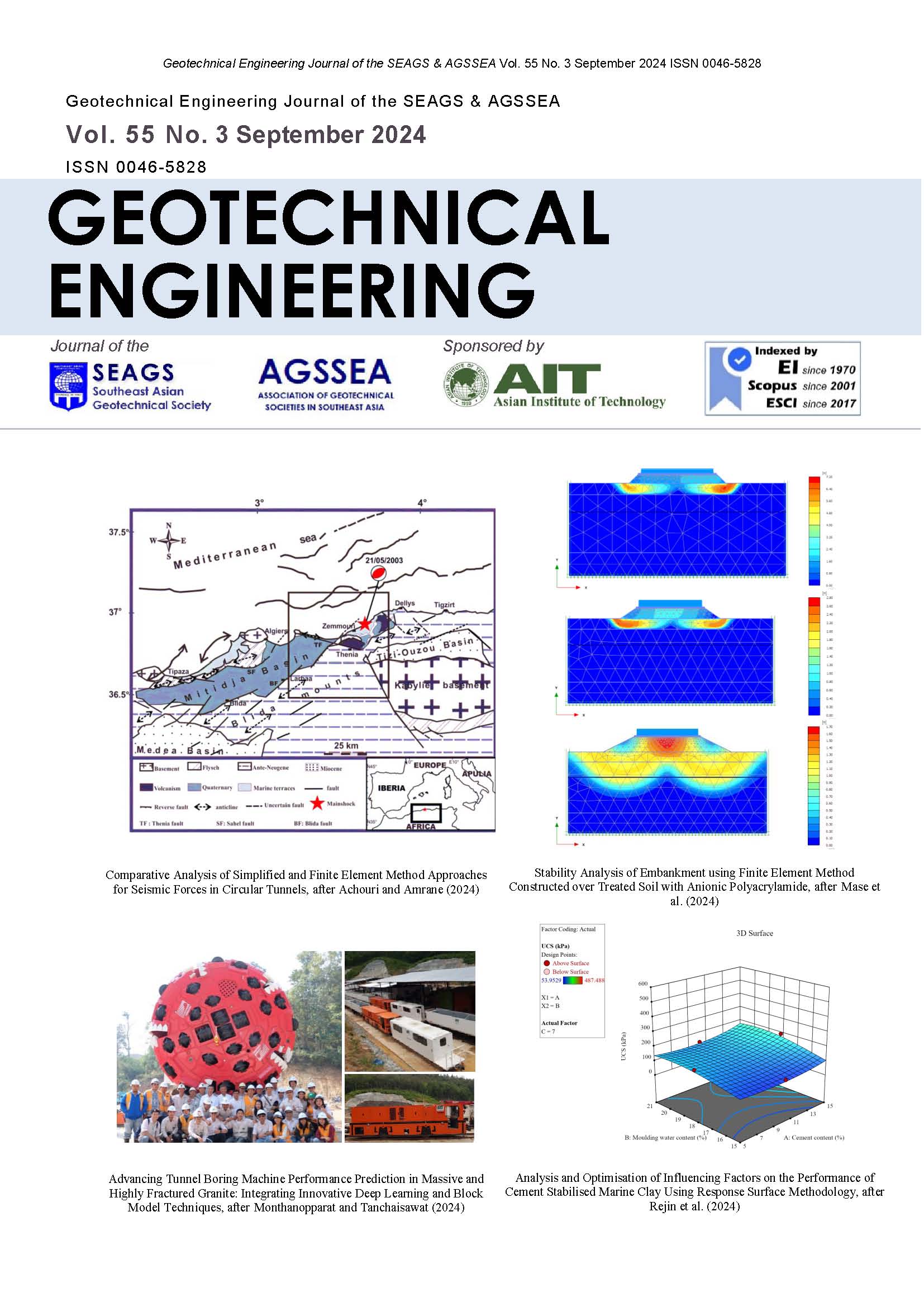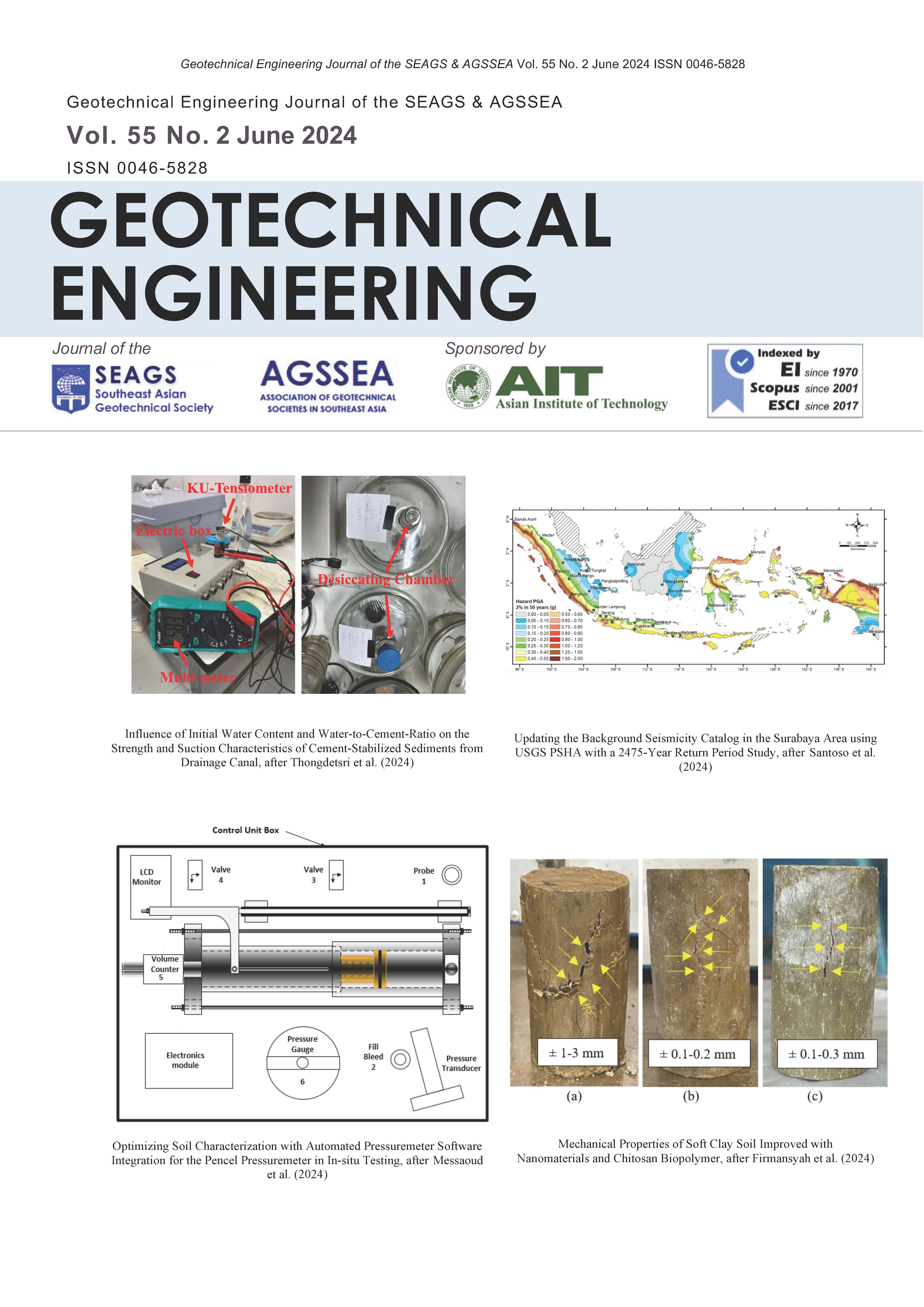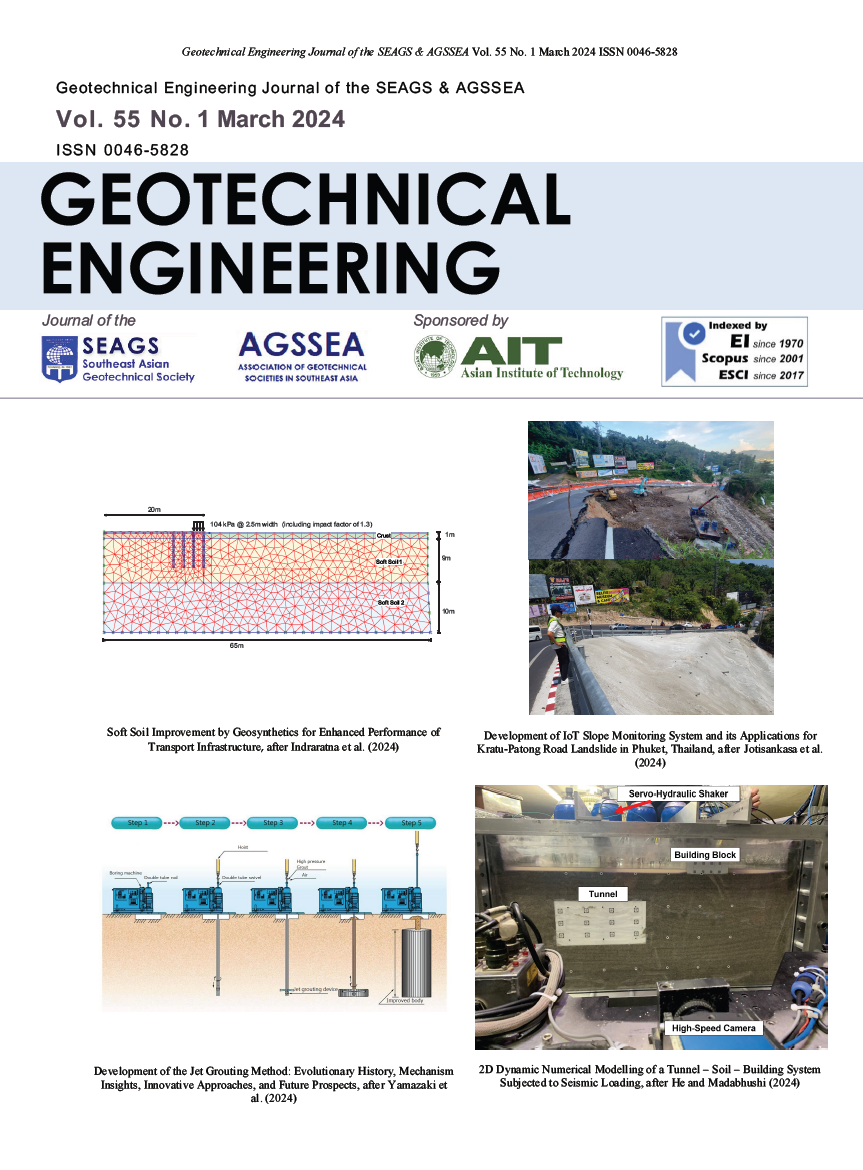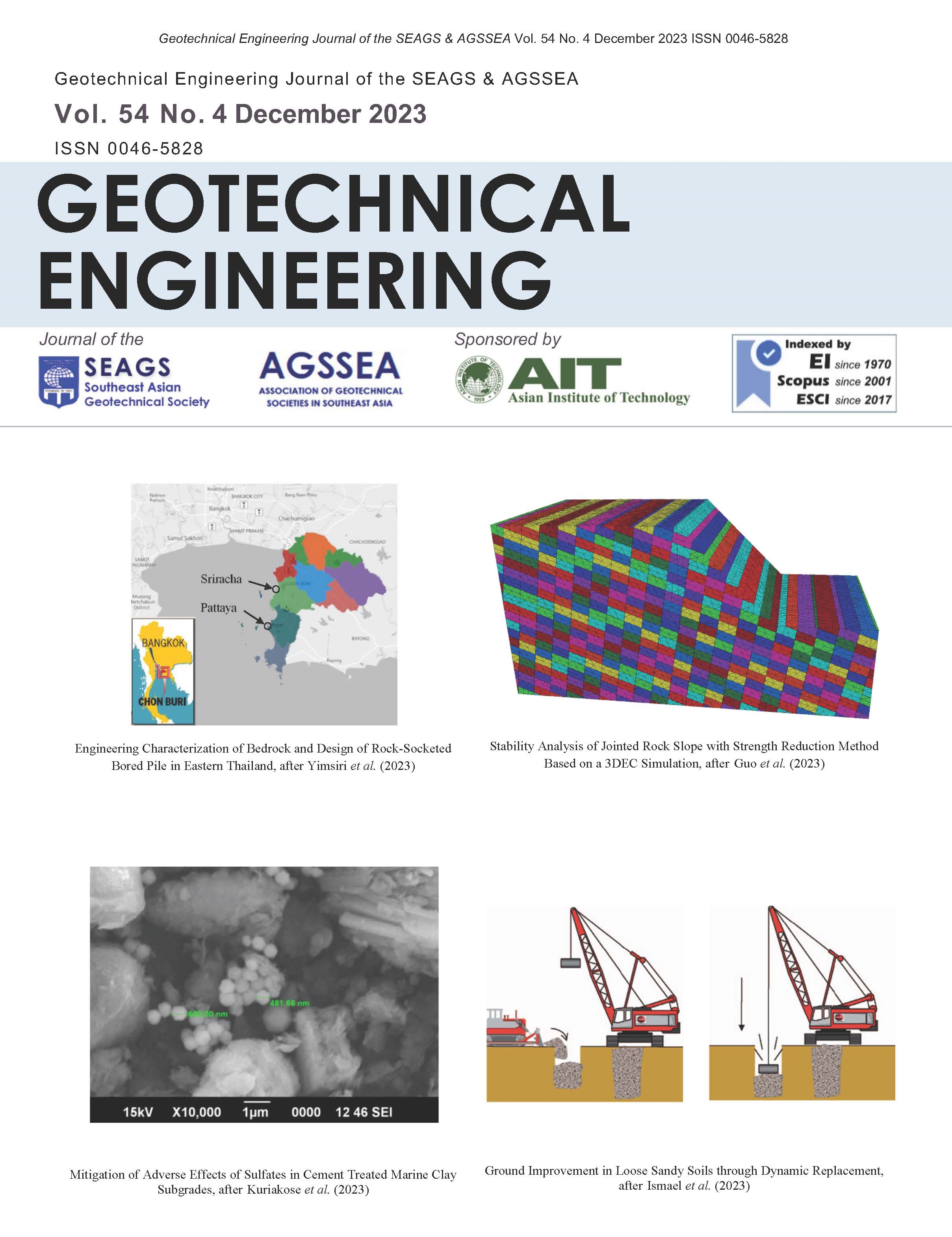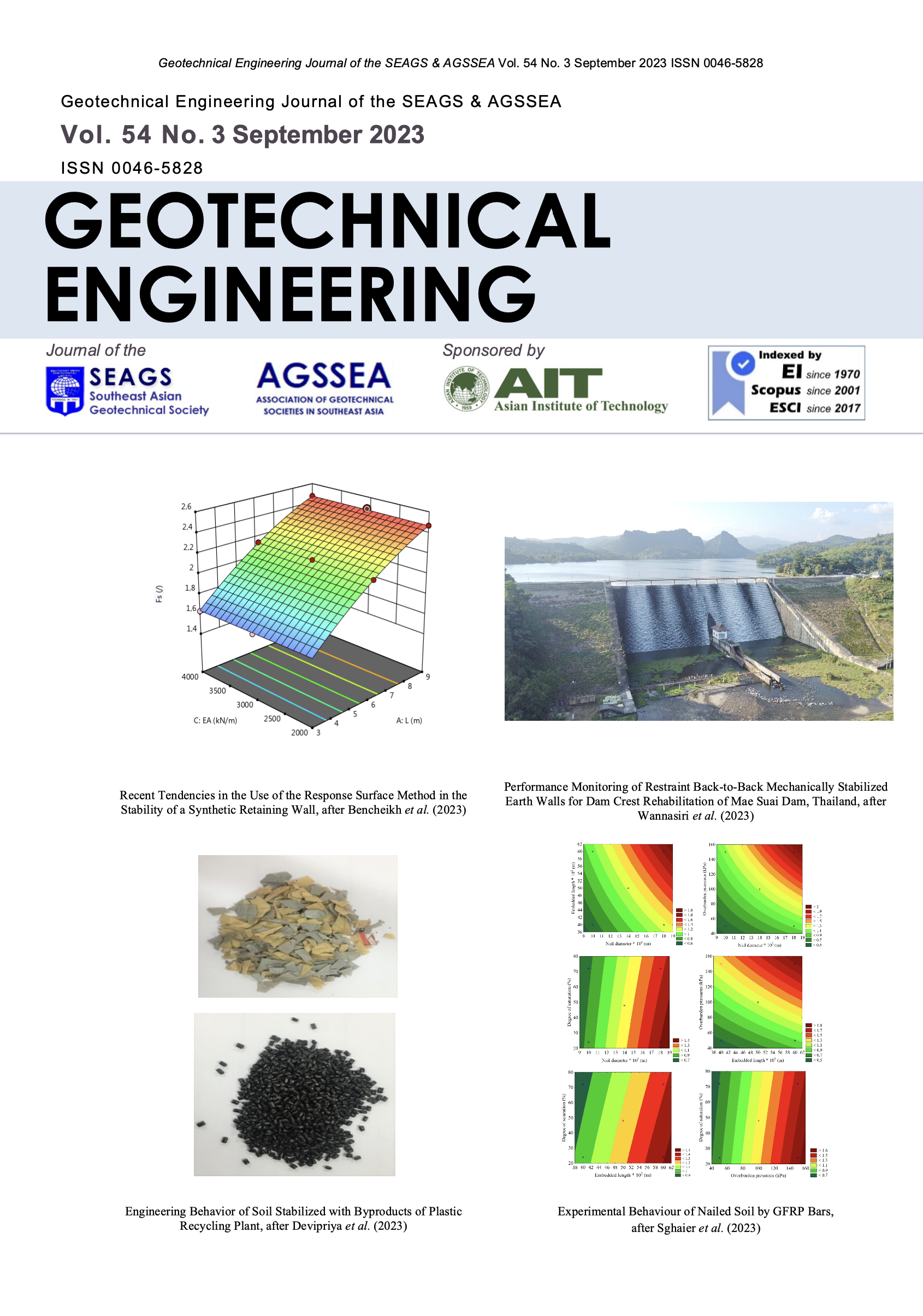Geotechnical Engineering Journal of the SEAGS & AGSSEA ISSN 0046-5828
Vol. 54 No. 2 June 2023
Performance of Cost-Effective Deep Tube Wells for Groundwater Development in Bangladesh
Nazrul I. Khan, Tomoharu Hori, and Mohammad A. Kader
ABSTRACT: Different water-lifting devices have ensured irrigation and public water supplies for urban and rural areas of Bangladesh. A cost-effective deep tube well (DTW) model was developed by the Rural Development Academy (RDA), Bogura, when the government subsidised groundwater withdrawal in Bangladesh. The aim of this study was to analyse the performance of borehole technology in terms of cost, design, effectiveness, and adoption in rural Bangladesh. The cost of the RDA-developed DTW was lower (0.06–0.5 million BDT) than that of the traditional DTW, and the discharge capacity varied from 20 to 200 m3/hr. The modified borehole by the RDA used its developed design, locally available materials, local human resources, and manual drilling to construct a DTW that exhibited excellent performance with minimal cost. The output of the DTW is demand-based technology, in which the discharge capacity depends on the farm size and the number of beneficiaries. Therefore, RDA-developed DTW technology is highly appreciated by non-governmental organisations and local-level entrepreneurs in Bangladesh to improve groundwater development.
KEYWORDS: Irrigation, Groundwater utilisation, Rural development, and Water resources.






